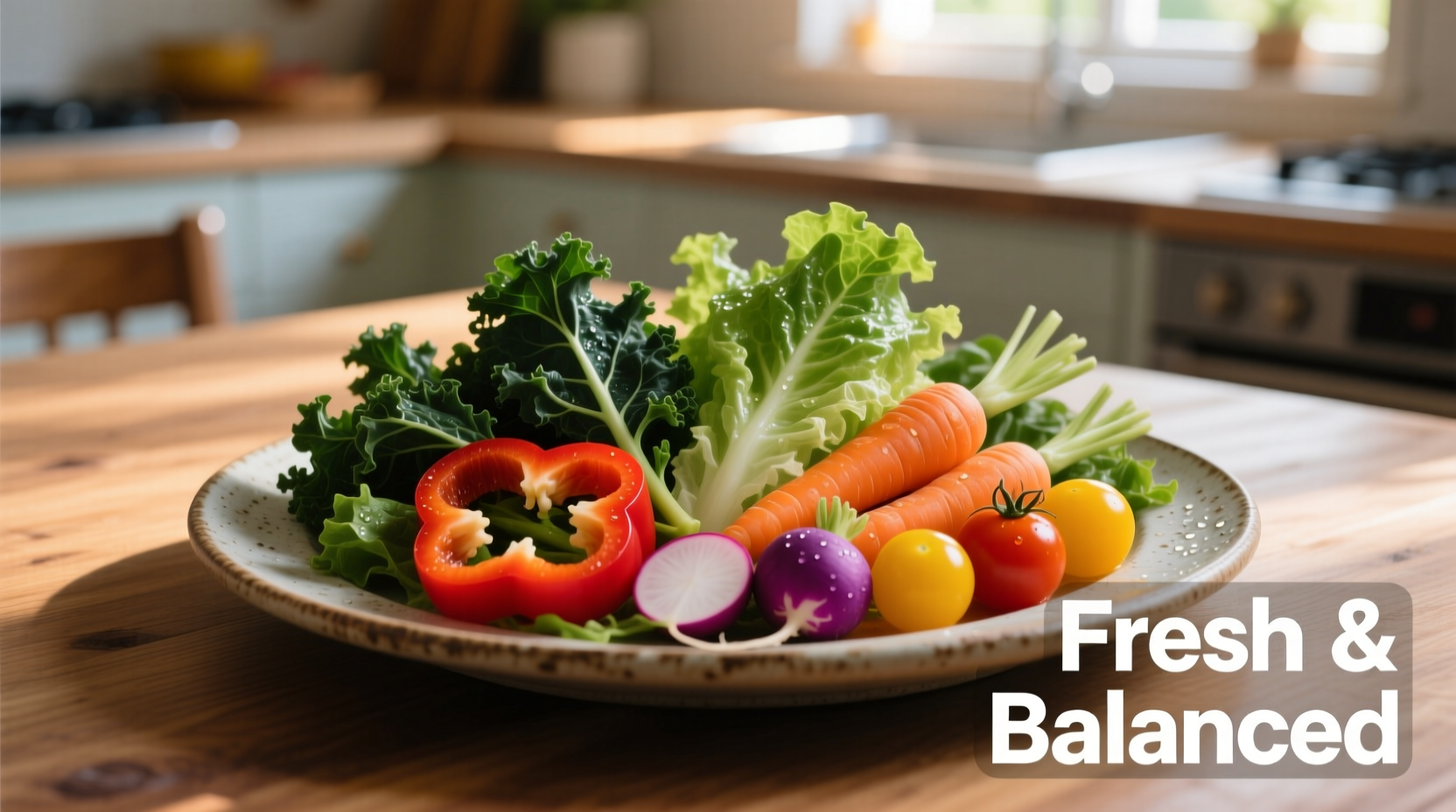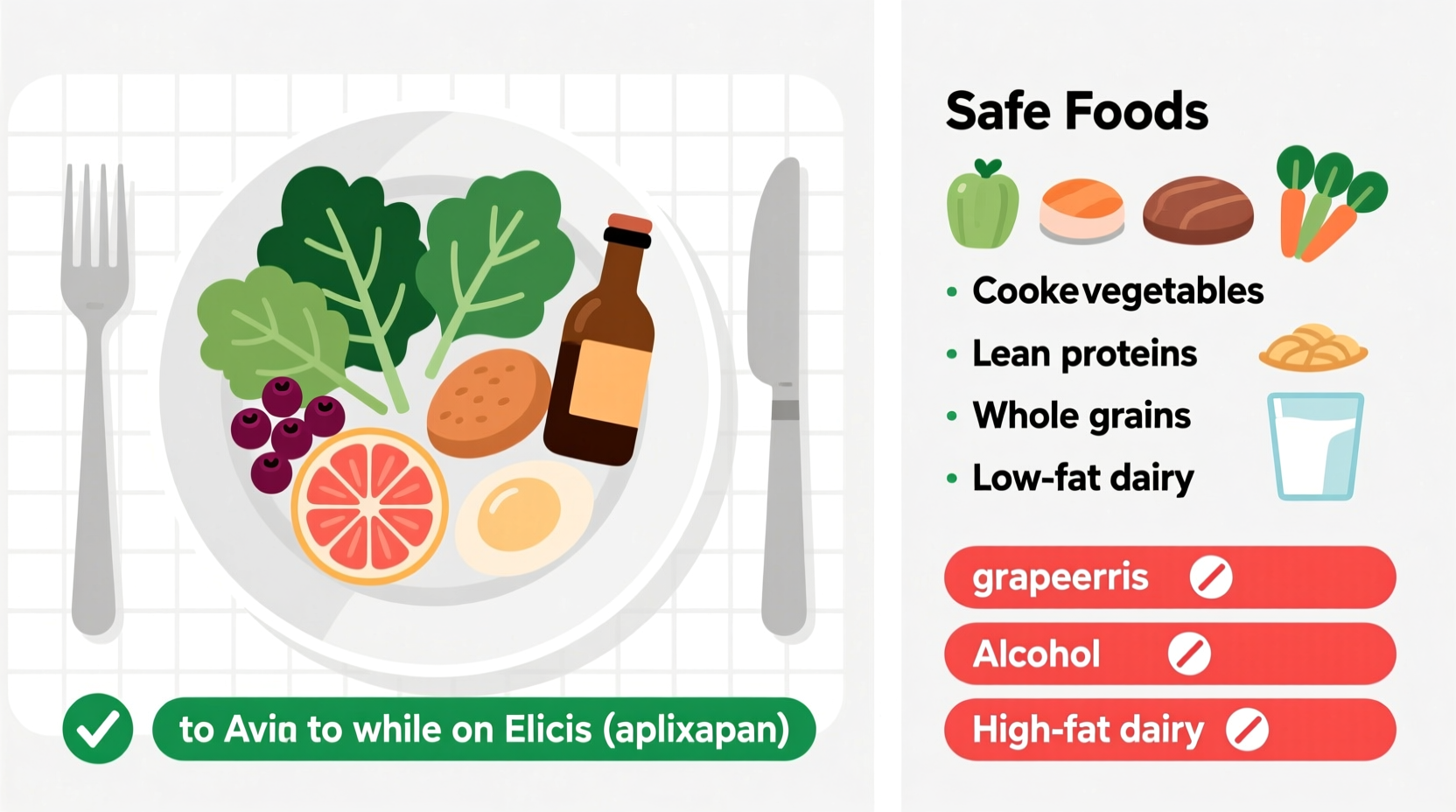If you're taking Eliquis (apixaban), you should primarily avoid large amounts of vitamin K-rich foods like kale, spinach, and broccoli, completely avoid grapefruit and grapefruit juice, and limit alcohol consumption. Unlike warfarin, Eliquis has fewer dietary restrictions, but certain foods can still impact medication effectiveness or increase bleeding risk.
When you're prescribed Eliquis (apixaban) for blood thinning, understanding which foods to avoid is crucial for your safety and treatment effectiveness. Many patients mistakenly believe all blood thinners require strict dietary restrictions like warfarin, but Eliquis works differently. This comprehensive guide provides evidence-based information about food interactions with Eliquis, helping you maintain your health while enjoying a varied diet.
Why Certain Foods Matter When Taking Eliquis
Eliquis (apixaban) works by inhibiting Factor Xa, a key component in your blood's clotting process. Unlike warfarin, which is significantly affected by vitamin K intake, Eliquis has fewer dietary restrictions. However, specific foods can still impact how your body processes the medication or increase bleeding risks.
According to the FDA prescribing information, while Eliquis doesn't require routine monitoring of INR levels like warfarin, certain dietary components can still affect its absorption and metabolism through interactions with liver enzymes.
Foods to Completely Avoid on Eliquis
These foods pose the highest risk and should be eliminated from your diet while taking Eliquis:
Grapefruit and Grapefruit Juice
Grapefruit contains compounds that inhibit CYP3A4 enzymes in your liver and intestines, which are responsible for metabolizing Eliquis. When these enzymes are inhibited, Eliquis levels in your bloodstream can increase significantly, raising your risk of dangerous bleeding.
The Mayo Clinic specifically warns that even small amounts of grapefruit can affect medication metabolism for up to 72 hours. This interaction applies to all forms of grapefruit including juice, segments, and extracts.
Excessive Alcohol Consumption
While moderate alcohol consumption may be acceptable for some Eliquis users, excessive drinking significantly increases bleeding risk. The American Heart Association recommends limiting alcohol to no more than one drink per day for women and two for men when taking anticoagulants.
Alcohol affects platelet function and can irritate your stomach lining, creating a dangerous combination with blood thinners. Binge drinking while on Eliquis dramatically increases the risk of gastrointestinal bleeding and hemorrhagic stroke.
| Food/Beverage | Risk Level | Reason for Concern | Safe Alternative |
|---|---|---|---|
| Grapefruit & derivatives | High | Inhibits medication metabolism | Orange, apple, or cranberry juice |
| Excessive alcohol | High | Increases bleeding risk | Moderate consumption (1-2 drinks) |
| Cranberry products | Moderate | Potential interaction | Small amounts occasionally |
| Vitamin K-rich greens | Low | Minimal impact on Eliquis | Consistent moderate portions |
Foods That Require Caution, Not Complete Avoidance
Unlike warfarin, Eliquis isn't significantly affected by vitamin K intake. However, maintaining consistency in your diet remains important for overall health management.
Vitamin K-Rich Foods
Leafy greens like kale, spinach, broccoli, and Brussels sprouts contain high levels of vitamin K, which plays a role in blood clotting. With warfarin, these foods require strict monitoring, but Eliquis works through a different mechanism.
According to research published in the Journal of the American College of Cardiology, "Direct oral anticoagulants like apixaban demonstrate minimal interaction with dietary vitamin K, allowing for greater dietary flexibility compared to vitamin K antagonists." This means you can enjoy these healthy foods in consistent, moderate portions.
Cranberry Products
While evidence is mixed, some studies suggest cranberry products might increase the effects of certain blood thinners. The Agency for Healthcare Research and Quality notes that "the potential interaction between cranberry and anticoagulants remains uncertain, but caution is advised." Enjoy cranberry juice or sauce occasionally in small amounts, but avoid daily consumption.
Herbal Supplements and Spices to Approach Carefully
Many natural remedies can interact with Eliquis, sometimes dramatically increasing bleeding risk:
- Ginkgo biloba - significantly increases bleeding risk
- Ginseng - may decrease Eliquis effectiveness
- Garlic supplements - can enhance blood-thinning effects
- Fish oil supplements (high dose) - increases bleeding risk
- Willow bark - similar to aspirin, increases bleeding risk
Before starting any new supplement, consult your healthcare provider. The National Center for Complementary and Integrative Health advises that "natural doesn't always mean safe," especially when combined with prescription medications.

Practical Daily Management Tips
Successfully managing your diet while on Eliquis doesn't require drastic changes. Implement these practical strategies:
Maintain Dietary Consistency
While you don't need to eliminate vitamin K-rich foods, try to consume them in consistent amounts. Sudden large increases or decreases could potentially affect your treatment, though the risk is much lower than with warfarin.
Read Labels Carefully
Many processed foods and supplements contain hidden ingredients that might interact with Eliquis. Check labels for:
- Grapefruit derivatives in beverages and supplements
- High-dose vitamin K in fortified foods
- Herbal extracts in "natural" products
Keep a Food and Medication Journal
Document what you eat along with your medication schedule. This helps identify potential patterns if you experience unusual bruising or bleeding. Note any new supplements or significant dietary changes.
When to Contact Your Healthcare Provider
Seek immediate medical attention if you experience:
- Unusual or prolonged bleeding
- Easy bruising without apparent cause
- Pink or brown urine
- Red or black stools
- Severe headaches or dizziness
Always inform all healthcare providers, including dentists, that you're taking Eliquis before any procedures. Your doctor may provide specific guidance about temporarily adjusting your medication before surgeries or dental work.
Working With Your Healthcare Team
The most important aspect of managing your diet on Eliquis is maintaining open communication with your healthcare providers. They can provide personalized advice based on your specific health conditions, other medications, and individual risk factors.
Remember that medical guidelines evolve. The American College of Chest Physicians updated their anticoagulation guidelines in 2023 to reflect growing evidence about the relative safety of dietary vitamin K with direct oral anticoagulants like Eliquis compared to warfarin.
Final Thoughts on Diet and Eliquis
While taking Eliquis requires some dietary awareness, it shouldn't significantly limit your food choices. By avoiding grapefruit completely, moderating alcohol, being cautious with certain supplements, and maintaining consistent eating habits, you can safely enjoy a varied, nutritious diet.
Always prioritize professional medical advice over general information. Your healthcare provider remains your best resource for personalized guidance about managing your diet while taking Eliquis.











 浙公网安备
33010002000092号
浙公网安备
33010002000092号 浙B2-20120091-4
浙B2-20120091-4